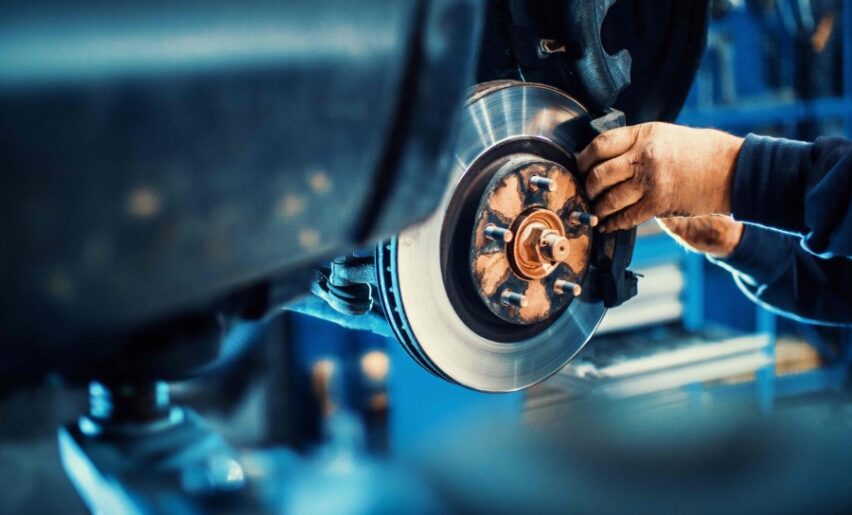Car culture is alive and well, and the industry that keeps our beloved vehicles humming – the automotive aftermarket – is thriving alongside it. But is the aftermarket a good career path for you? If you’re mechanically inclined, have a passion for cars, and enjoy a dynamic work environment, then the answer might be a resounding yes.
This article dives into the world of automotive aftermarket careers, exploring the exciting opportunities, growth potential, and skills you’ll need to succeed.
What Is The Automotive Aftermarket?
Simply put, the automotive aftermarket is the industry that supplies and services vehicles after they leave the dealership. This encompasses a vast array of products and services, including:
- Replacement parts: From brake pads to engines, the aftermarket keeps cars running smoothly and safely.
- Performance parts: Enthusiasts can upgrade their vehicles with performance-enhancing components like suspension systems and air intake kits.
- Accessories: From in-car entertainment systems to custom wheels, the aftermarket offers a plethora of ways to personalize a vehicle.
- Repair and service: Garages, repair shops, and dealerships all rely on the aftermarket for parts and expertise to fix cars.
A Diverse Landscape of Career Opportunities
The beauty of the automotive aftermarket lies in its variety. There’s a niche for almost any skillset or interest, with career paths ranging from technical to creative:
- Auto mechanics and technicians: The backbone of the industry, mechanics diagnose and repair vehicles, performing a wide range of tasks like oil changes, brake repairs, and engine overhauls. Specializations like high-performance mechanics or electric vehicle (EV) technicians are becoming increasingly sought-after.
- Parts sales representatives: If you have a knack for customer service and enjoy the technical aspects of cars, parts sales could be a great fit. You’ll advise customers on the right parts for their vehicles and navigate the ever-evolving inventory.
- Service advisors: The bridge between customer and mechanic, service advisors communicate repair needs, estimate costs, and answer customer questions. Strong communication and interpersonal skills are key.
- Body shop technicians: Collision repair technicians are experts in restoring damaged vehicles to their pre-accident condition. This requires meticulous attention to detail and knowledge of specialized tools and techniques.
- Sales and marketing professionals: The aftermarket thrives on reaching a wide audience. Sales and marketing roles involve promoting parts, accessories, and services while staying current with industry trends.
- Product development and design: If you’re the creative type, consider a career in product development. Here, you’ll design and engineer new aftermarket parts and accessories, ensuring they meet performance and safety standards.
Why Choose The Automotive Aftermarket?
There are several compelling reasons to consider a career in the automotive aftermarket:
- Job Security and Growth: Cars are a vital part of our lives, and the aftermarket ensures they stay on the road. This translates to job security, with the industry projected to grow steadily in the coming years [refer to a resource on job growth in the aftermarket.
- High Earning Potential: Skilled technicians and specialists in the aftermarket can command competitive salaries. Wages can vary depending on experience, specialization, and geographic location.
- Hands-on Learning: The aftermarket offers a unique blend of theoretical knowledge and practical application. You’ll learn by doing, gaining valuable skills that are transferable to other mechanical fields.
- Variety and Challenge: The world of cars is constantly evolving, with new technologies and trends emerging all the time. This means a career in the aftermarket offers a dynamic and ever-changing environment.
- Sense of Accomplishment: Fixing a car and seeing it run smoothly again provides a tangible sense of accomplishment. There’s a deep satisfaction in knowing your skills have kept someone on the road.
Skills Needed For Success
To thrive in the automotive aftermarket, a combination of hard and soft skills is essential:
- Mechanical aptitude: Understanding how cars work is fundamental. This can be gained through vocational training, apprenticeships, or on-the-job experience.
- Problem-solving skills: Diagnosing and repairing car troubles requires a methodical approach and the ability to think critically.
- Attention to detail: Safety is paramount in the automotive industry. A meticulous eye for detail ensures repairs are done correctly.
- Customer service: Whether you’re directly interacting with customers or working behind the scenes, strong communication and interpersonal skills are valuable assets.
- Lifelong learning: The automotive industry is constantly evolving. A willingness to learn new technologies and adapt to changing trends is crucial for long-term success.
Additional:
- All You Need To Know About Jeinz Macias
- All You Need To Know About Boeing Worklife
- All You Need To Know About Veronica Church
~Feature Image Source: https://tinyurl.com/bdhwuxj8

